 |
VO-BB - 20 YEARS OLD!
Established November 10, 2004
|
| View previous topic :: View next topic |
| Author |
Message |
Mike Harrison
M&M

Joined: 03 Nov 2007
Posts: 2029
Location: Equidistant from New York City and Philadelphia, along the NJ Shore
|
 Posted: Tue Nov 23, 2010 6:08 am Post subject: What degree of editing is your standard? Posted: Tue Nov 23, 2010 6:08 am Post subject: What degree of editing is your standard? |
 |
|
If your client does not specify or has no preference, to what degree do you edit your voice tracks?
(Edited to include the following clarification)
Please don't misinterpret my question. Not by a long shot am I new to recording and editing my voice. I ask this question in hopes of simply learning what others consider their standard form of editing; how 'clean' (or even sterile) their tracks are when delivered to the client.
Working from my own studio, I don't believe I have never had a client who asked for raw (completely unedited) files. I consider it an 'added value' (as do many other VO people) to supply a client with a voice track that is at the very least free of bad takes. There are many VOs who do only basic editing; perhaps because that's all they know how to do, or their clients don't want to pay for extra editing time to remove saliva clicks and other mouth noise. Some clients don't even care whether breaths are removed or otherwise dealt with, but there are many VOs who remove breaths because they feel the track sounds better without them.
Personally, I think the complete removal of breaths make a track sound unnatural and, as such, it can draw undue subconscious attention to the narrator. Breathing is a completely natural part of speech (unless one is too close to the mic and/or they use too much compression; I hear quite a lot of that). But I don't know anyone who consciously tries to avoid hearing the breathing of someone they are conversing with.
Because an increasing number of clients like to receive 'finished audio' (they intend to drop the audio into an existing Flash animation, for example), editing time can drastically jump if every single breath and mouth noise is either removed or otherwise processed. When a client asks for a quote or estimate, the degree of editing will be a major factor (editing can take four times more time than the recording time). A factor on whether one wins a job or loses one.
My personal editing preference is to leave all breaths just as they are (I have excellent mic technique and use minimal compression). I will remove mouth noises only if they are excessive. I try to save my clients some money by not taking extra time to fix things that the average audience member/listener - or client - wouldn't even notice.
So, back to my question: After completing your recording and beyond the removal of bad takes? Do you also:
1. completely silence every single breath and leave the space as it was?
2. replace each breath with a shorter, uniform amount of silence or do you adjust each one by ear?
3. reduce the level of all breaths or only those that are bothersome to you?
4. remove all saliva clicks and other mouth noises, just the worst, or none?
5. use EQ to reduce plosive noise?
Also, if you are asked to break the narration into individual frames/files, do you add a short, uniform amount of silence to the beginning and end of each of those files?
Again, I am interested to know what your normal procedure is only if the client doesn't specify or has no preference.
Thanks.
_________________
Mike
Male Voice Over Talent
I have taken leave of my sensors.

Last edited by Mike Harrison on Tue Nov 23, 2010 10:47 am; edited 1 time in total |
|
| Back to top |
|
 |
todd ellis
A Zillion
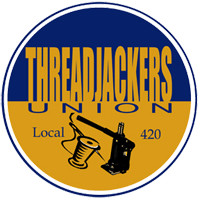
Joined: 02 Jan 2007
Posts: 10539
Location: little egypt
|
 Posted: Tue Nov 23, 2010 6:19 am Post subject: Posted: Tue Nov 23, 2010 6:19 am Post subject: |
 |
|
i hope you don't take this the wrong way - but good mic technique will greatly reduce/eliminate 1-5.
as far as silence before/after, if it's not specified i just eyeball it.
_________________
"i know philip banks": todd ellis
who's/on/1st?
 |
|
| Back to top |
|
 |
Mike Harrison
M&M

Joined: 03 Nov 2007
Posts: 2029
Location: Equidistant from New York City and Philadelphia, along the NJ Shore
|
 Posted: Tue Nov 23, 2010 6:55 am Post subject: Posted: Tue Nov 23, 2010 6:55 am Post subject: |
 |
|
The content of this post was incorporated into the text of my first post of this thread.
_________________
Mike
Male Voice Over Talent
I have taken leave of my sensors.

Last edited by Mike Harrison on Tue Nov 23, 2010 10:48 am; edited 1 time in total |
|
| Back to top |
|
 |
todd ellis
A Zillion

Joined: 02 Jan 2007
Posts: 10539
Location: little egypt
|
 Posted: Tue Nov 23, 2010 8:05 am Post subject: Posted: Tue Nov 23, 2010 8:05 am Post subject: |
 |
|
in that case 99% of everything i send is set to 12-high across the board with no processing whatsoever. what i put in - they get out. if i'm sending individual files i chop 'em up in a way that seems right to me - unless i'm directed otherwise.
_________________
"i know philip banks": todd ellis
who's/on/1st?
 |
|
| Back to top |
|
 |
asnively
Triple G

Joined: 17 Jun 2006
Posts: 3204
Location: Los Angeles
|
 Posted: Tue Nov 23, 2010 9:16 am Post subject: Posted: Tue Nov 23, 2010 9:16 am Post subject: |
 |
|
I remove any clicks or pops, minimize breaths by ear, correct any popped plosives. But otherwise, the audio is dry. No processing, compression, EQ, etc.
_________________
the Amy Snively family of brands for all your branded thing needs.
Amy Snively
Faff Camp
FaffCon
TalkerTees |
|
| Back to top |
|
 |
Mike Sommer
A Hundred Dozen
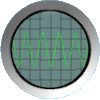
Joined: 05 May 2008
Posts: 1222
Location: Boss Angeles
|
 Posted: Tue Nov 23, 2010 10:00 am Post subject: Posted: Tue Nov 23, 2010 10:00 am Post subject: |
 |
|
It should not be your job to edit your stuff. But if you do it's either to compensate for your own shortcomings or vanity. We tend to mill our audio to the constancy of cake flower when all we need is all-purpose.
The idea of cutting breath should really be left to the taste of the producer and production engineer. Breath is often the human eliminate that bonds us to the copy. Otherwise it can sound mechanical and fake when all the breaths are taken out.
If your popping and clicking then work on your technique and warm up a little more and hydrate yourself.
_________________
The Blog:
http://voiceoveraudio.blogspot.com/
Acoustics are counter-intuitive. If one thing is certain about acoustics, it is that if anything seems obvious it is probably wrong. |
|
| Back to top |
|
 |
Lizden
A Zillion
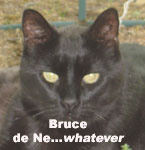
Joined: 04 Dec 2006
Posts: 8864
Location: The dark recesses of my mind
|
 Posted: Tue Nov 23, 2010 10:09 am Post subject: Posted: Tue Nov 23, 2010 10:09 am Post subject: |
 |
|
1. completely silence every single breath and leave the space as it was? NEVER
2. replace each breath with a shorter, uniform amount of silence or do you adjust each one by ear? Adjust each by ear
3. reduce the level of all breaths or only those that are bothersome to you? Only the bothersome ones
4. remove all saliva clicks and other mouth noises, just the worst, or none?
all saliva clicks and other mouth noises (because they bug me!)
5. use EQ to reduce plosive noise? Nope
Also, if you are asked to break the narration into individual frames/files, do you add a short, uniform amount of silence to the beginning and end of each of those files? yep, via batch processing
_________________
Liz de Nesnera O.A.V. ~ Livin' The VO Dream!
English/French Bilingual VO w/ ISDN
HireLiz.com / liz@hireliz.com |
|
| Back to top |
|
 |
ccpetersen
With a Side of Awesome

Joined: 19 Sep 2007
Posts: 3708
Location: In Coherent
|
 Posted: Tue Nov 23, 2010 10:32 am Post subject: Posted: Tue Nov 23, 2010 10:32 am Post subject: |
 |
|
There comes a time when no matter how hydrated you are or how good your mic promiximity is, you're gonna get clicks. If they're really obvious and in the "clear", I remove 'em. Otherwise, not. Had one client recently complain about one mouth click, and it was so quiet that I had a hard time hearing it in the middle of the word. I certainly don't like to go editing them out of the middles of words.
For me, it depends on what the client asks for.
1. completely silence every single breath and leave the space as it was?
My preference is to "silence" the long pauses between lines and delete any obvious coughs, etc.
2. replace each breath with a shorter, uniform amount of silence or do you adjust each one by ear?
See above, but yes, I adjust by ear. Obviously, non breath objects (like coughs, sniffles, etc.) get taken out along with bad takes.
3. reduce the level of all breaths or only those that are bothersome to you?
See 1 and 2.
4. remove all saliva clicks and other mouth noises, just the worst, or none?
Remove the worst, usually the ones in the clear. That being said, I just did a piece where the script called for me to smack my lips and make ticking noises. For some reason, even though I'd hydrated, etc., I thought those sounded awful. But, the client was happy...
5. use EQ to reduce plosive noise?
I try to really stay on top of mic technique to avoid those, but they do occasionally creep in. I've had some luck with using EQ or messing with volume on those plosives. But, really, just prefer to re-take to avoid the plosives.
Also, if you are asked to break the narration into individual frames/files, do you add a short, uniform amount of silence to the beginning and end of each of those files?
Yes, usually, well after the words have ended.
_________________
Charter Member: Threadjackers Local 420 |
|
| Back to top |
|
 |
Darren Altman
Cinquecento
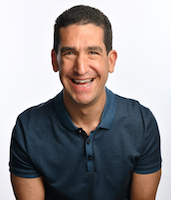
Joined: 17 Oct 2009
Posts: 551
Location: London, UK
|
 Posted: Tue Nov 23, 2010 10:41 am Post subject: Posted: Tue Nov 23, 2010 10:41 am Post subject: |
 |
|
1. completely silence every single breath and leave the space as it was? Depends on the read. - For narrations/E-Learning etc, never. But for jingles/promos/dynamic, in your face reads, YES!
2. replace each breath with a shorter, uniform amount of silence or do you adjust each one by ear? - Adjust each by ear
3. reduce the level of all breaths or only those that are bothersome to you? - I never reduce the level of breaths, I either leave them in or take them out. Sometimes, I will make them smaller if I had to take a large breath for a big sentence.
4. remove all saliva clicks and other mouth noises, just the worst, or none - The vast majority of them, yes. I'm fastidious!
5. use EQ to reduce plosive noise? - I never use EQ, but I add compression to all reads unless the client specifies otherwise. Soundbooth has a great tool that gets rid of pops! You just highlight the plosive-apply-and voila!
Mike, with all due respect it's completely wrong to suggest that our editing our reads is due to our shortcomings or vanity. Don't forget that a lot of clients want a voiceover and yet know absolutely nothing about what it takes to make it sound like a professional, finished read. If we sent them the raw files with a "there you go, you sort it" attitude, it could sound ridiculous if no editing was done.
Also how many spots/tags/jingles have you heard with no production, compression or lots of breaths? Again, if the client has no experience of editing audio and wants a fast-paced, dynamic read, hell, if I can charge them for my time I see absolutely no reason why I shouldn't take the time to make it sound fantastic and tidy it up for them.
_________________
https://www.darrenaltman.com/
http://twitter.com/darrenaltman |
|
| Back to top |
|
 |
Dan4VO
Contributor
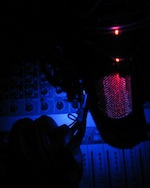
Joined: 31 Mar 2006
Posts: 42
Location: Asheville, NC
|
 Posted: Tue Nov 23, 2010 10:54 am Post subject: Meticulously and Completely Posted: Tue Nov 23, 2010 10:54 am Post subject: Meticulously and Completely |
 |
|
Unless the client has specified otherwise, if you are going to edit at all... it should be done meticulously and completely. If you are the least bit apprehensive about editing or are unsure of exactly what needs to be done, then you should leave editing for the engineer.
Compression and EQ are mixing functions and should definitely be left to the engineer or end user.
Dan
_________________
www.sound4vo.com
www.procommvoices.com
http://www.authorhouse.com/Bookstore/BookDetail.aspx?BookId=SKU-000377548 |
|
| Back to top |
|
 |
Lee Gordon
A Zillion
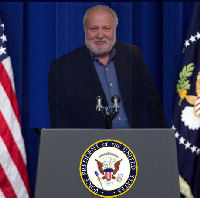
Joined: 25 Jul 2008
Posts: 6868
Location: West Hartford, CT
|
 Posted: Tue Nov 23, 2010 10:55 am Post subject: Posted: Tue Nov 23, 2010 10:55 am Post subject: |
 |
|
| Mike Sommer wrote: | | It should not be your job to edit your stuff. |
Maybe not, but as a consumer, I appreciate it when somebody I do business with does something for me that isn't necessarily "his job." For instance, when I take my car in for service at my dealership, their job is to perform the service, not to wash my car. But when I retrieve my car and it's cleaner than when I dropped it off, it makes me feel better about doing business with them.
By the same token, I take a few extra minutes to remove any breaths that I feel are in the wrong place (sometimes due to poor copywriting on their part, sometimes a lapse of good technique on mine), lower the volume on any breaths that I think are too loud, trim out any extraneous noises that sneak in despite my best efforts to use proper mic technique, and remove large dead spaces and irrelevant chit chat from sessions that were directed by phone.
I do this, not because it's my job, but because I'd rather provide my clients with an excellent product than an almost-excellent product.
On the other hand, I totally agree with Mike about creative choices. Unless specifically requested, I never add EQ or compression or any other effects. Not only is it not my job, it's not my place.
_________________
Lee Gordon, O.A.V.
Voice President of the United States
www.leegordonproductions.com
Twitter: @LeeGordonVoice
 |
|
| Back to top |
|
 |
jsgilbert
Backstage Pass

Joined: 27 Jun 2008
Posts: 468
Location: left coast of u.s.
|
 Posted: Tue Nov 23, 2010 11:26 am Post subject: Posted: Tue Nov 23, 2010 11:26 am Post subject: |
 |
|
Generally speaking, it falls under the "Do unto others as you would have them do unto you." I am not by any stretch of the imagination a technically precise v.o. talent, but coming into this business when we still did things analog, I learned the importance of doing a fairly clean take.
That said, back then methodology for compressing the voice dealt more with tape saturation and sibilance was a bit less of an issue. Generally I run a little de-essing. I often leave fairly large holes in my original recordings to acomodate moving off mike to take a breath, so it is usually a matter of cutting out some extra silence, instead of going in and fixing excessive breaths. Ocassional plosives are generally re-recorded and inserted. Yes, I could feduddle with them, but I have found it's usually easier to just to re-record them.
Since my booth is under 2,000 cubic feet and the receommended sound proofing method calls for dead quiet, I tend to roll off below 80 hz fairly aggresively and a little bit of a ramp going to 120HZ.
The only other thing might then be to do a little volume adjustment. Not exactly normalizing, but going in and grabbing any peaks that look like they are past -3 db and bring their volume down a little bit. Even in long form work, there tends not to be a ton of these.
I have to mention something a talent did a while back for me. I was producing a 2 person radio spot and hired someone via the internet. When they sent back the take, they had pauses where the other talents lines were supposed to go. WHen I threw it on the timeline, I had just a little tweaking to do and I could easily see where the other lines were supposed to go. It probably cut 15 minutes or so from my editing time. It was the first time somebody had ever done this.
Nice little touch. Oh, they also sent the take without the added silence, in case I wasn't keen on receiving it that way.
_________________
j.s. gilbert
js@jsgilbert.com
www.jsgilbert.com
"today is the first day of the rest of the week" |
|
| Back to top |
|
 |
Mike Harrison
M&M

Joined: 03 Nov 2007
Posts: 2029
Location: Equidistant from New York City and Philadelphia, along the NJ Shore
|
 Posted: Tue Nov 23, 2010 11:31 am Post subject: Posted: Tue Nov 23, 2010 11:31 am Post subject: |
 |
|
| Darren Altman wrote: | 3. reduce the level of all breaths or only those that are bothersome to you? - Sometimes, I will make them smaller if I had to take a large breath for a big sentence.
5. use EQ to reduce plosive noise? - I never use EQ, but I add compression to all reads unless the client specifies otherwise. Soundbooth has a great tool that gets rid of pops! You just highlight the plosive-apply-and voila!
Mike, with all due respect it's completely wrong to suggest that our editing our reads is due to our shortcomings or vanity. |
Darren, on the issue of breaths, rather than taking a larger than usual breath to read a longer than average sentence, try just reading and breathing normally, and break the sentence somewhere in the middle to take another breath. That would sound completely natural.
On the use of EQ and compression, if I understand you correctly, your software has a feature that 'magically' and completely removes the sound of a plosive pop? Sonically, that is impossible, because many of the frequencies that make up the sound of your breath impacting the mic's diaphragm are also present in your voice. A feature that completely removes a plosive pop is also affecting the sound of your voice at that moment. As for compression, I understand why many people - especially those who come from a radio background - like to use it, because it 'gives the voice more punch.' Consider, though, what compression does: it keeps everything at pretty much a constant level. If used with discretion and in moderation, it's OK (and almost anything is acceptable in commercials). But if the compression is a bit much, and it squeezes all the dynamics out of the audio (normal speech has softer qualities and louder qualities), it can create ear fatigue in the case of narrations, for example, where the audio content is longer than a minute or so. Listening to audio that is always at or near maximum level becomes subconsciously tiresome after a short time. Listen to any audio book narration, for example. A normal conversational tone is interrupted by an enthusiastic shout... and then some low-key dialogue. The dynamics of speech carry a lot of the story's emotion.
Because we very often send our files to another studio, where they are mixed with music and what-not, it really is best to use a minimal amount of processing of any kind. Doing so gives the engineer/producer who's doing the final mix the ultimate degree of control over the sound. If he or she decides to use compression and/or EQ, they can adjust it to their liking according to how the voice track plays against the music track, for example. A track that's been moderately EQ-d can be adjusted to some degree after the fact, but once a track is compressed, it can't be uncompressed. Experienced creative audio engineers appreciate having as many options as possible.
And, yes, I agree that Mike Sommer was wrong - and a bit rude, frankly, to suggest that our desire to edit our own material was due to any shortcomings or vanity. He clearly doesn't work with clients who prefer to receive edited files. I've since edited my initial post to clear up any misinterpretation of why I'm asking people's opinions about editing.
_________________
Mike
Male Voice Over Talent
I have taken leave of my sensors.

Last edited by Mike Harrison on Tue Nov 23, 2010 12:17 pm; edited 1 time in total |
|
| Back to top |
|
 |
Darren Altman
Cinquecento

Joined: 17 Oct 2009
Posts: 551
Location: London, UK
|
 Posted: Tue Nov 23, 2010 12:03 pm Post subject: Posted: Tue Nov 23, 2010 12:03 pm Post subject: |
 |
|
Mike, thanks for the reply I take your points on board. Don't get me wrong though, I will always ask the client if they want me to edit/tidy up the read and a lot of them will say no, so I'm not gungho with the editing!
_________________
https://www.darrenaltman.com/
http://twitter.com/darrenaltman |
|
| Back to top |
|
 |
Scott Pollak
The Gates of Troy
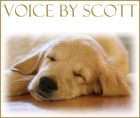
Joined: 01 Jun 2010
Posts: 1903
Location: Looking out at the San Juan mountains
|
 Posted: Tue Nov 23, 2010 1:58 pm Post subject: Posted: Tue Nov 23, 2010 1:58 pm Post subject: |
 |
|
I won't go into as extensive of detail as many others here did, partly because I tend to do what most of you have already stipulated above.
However, Mike said in his original query:
"I don't believe I have never had a client who asked for raw (completely unedited) files."
While certainly rare, this is not at all unheard of. I've had this request occasionally and it seems to come from the more professional clients who are completely comfortable with piecing together the best possible read from a number of different takes.
Generally the less sophisticated clients, such as one I had this week who needed two :30 spots, fully produced, to go on the air TOMORROW, want it chopped, sliced, wrapped and delivered ready to drive home.
_________________
Scott R. Pollak
Clients include Pandora, NPR Atlanta, Wells Fargo, Cisco, Humana, Publix, UPS, AT&T, HP, Xerox and more.
www.voicebyscott.com |
|
| Back to top |
|
 |
|
|
You cannot post new topics in this forum
You cannot reply to topics in this forum
You cannot edit your posts in this forum
You cannot delete your posts in this forum
You cannot vote in polls in this forum
|
Powered by phpBB © 2001, 2005 phpBB Group
|





